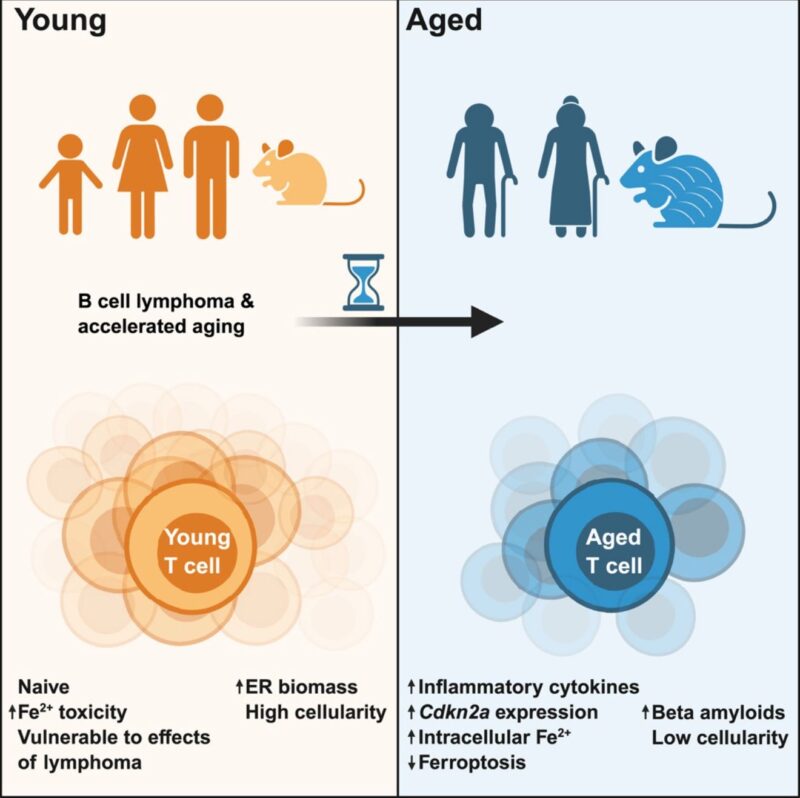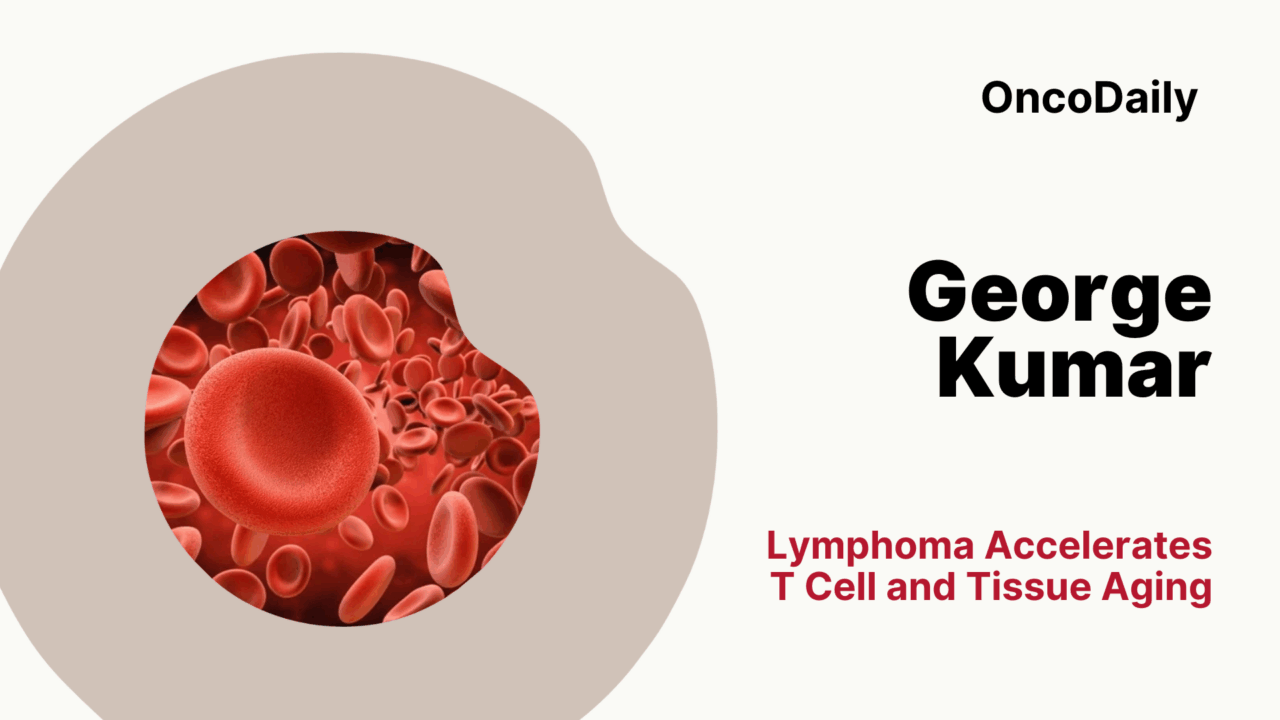George Kumar, Senior Director at AstraZeneca, shared on LinkedIn:
“Lymphoma accelerates T cell and tissue aging
Rebecca S et al from the Moffitt Cancer Center and Research Institute, Tampa, FL examined how aging and cancer (B cell lymphoma) together shape immune cell function.
They compared:
• Young vs aged mice with lymphoma
• T cells from young vs aged human lymphoma patients
Key Findings
1. Cancer Accelerates T Cell Aging in the Young
• Young T cells exposed to lymphoma developed transcriptional, epigenetic, and phenotypic features resembling aged T cells.
• Aged T cells, however, were largely resistant to further cancer-driven changes—suggesting they are already “fixed” in an aged state.
2. Iron Homeostasis & Ferroptosis Resistance
• Both aging and lymphoma induce open chromatin and gene expression programs controlling iron metabolism.
• These T cells accumulate increased intracellular iron pools.
• As a result, they become resistant to ferroptosis (iron-dependent programmed cell death), which may impair immune surveillance.
3. Proteostasis Defects
• Both aged and lymphoma-experienced T cells show defective proteostasis (protein quality control), a hallmark of aging.
4. Systemic Aging Acceleration
• Lymphoma influences non-immune tissues, leading to elevated markers of aging such as Cdkn2a and Tnfa.
• This suggests cancer can act as a systemic accelerator of aging processes.
5. Plastic vs Fixed Aging Phenotypes
• Some lymphoma-induced aging changes are reversible (suggesting therapeutic opportunities).
• Others are irreversible (“fixed”), limiting the extent of rejuvenation possible.
Implications
• Cancer can mimic or accelerate biological aging in immune and non-immune tissues.
• Young immune systems are more plastic and vulnerable to cancer-induced aging, while older immune systems are less responsive but more entrenched.
Takeaway: Cancer does not just drive uncontrolled cell growth — it can reprogram the biology of aging, weakening immune resilience and accelerating comorbidities. Understanding these intersections may help us design therapies that restore immune function, target iron metabolism, and improve outcomes for both cancer and aging-related disease.”

Figure Courtesy: Cancer Cell
More posts featuring George Kumar on OncoDaily.


